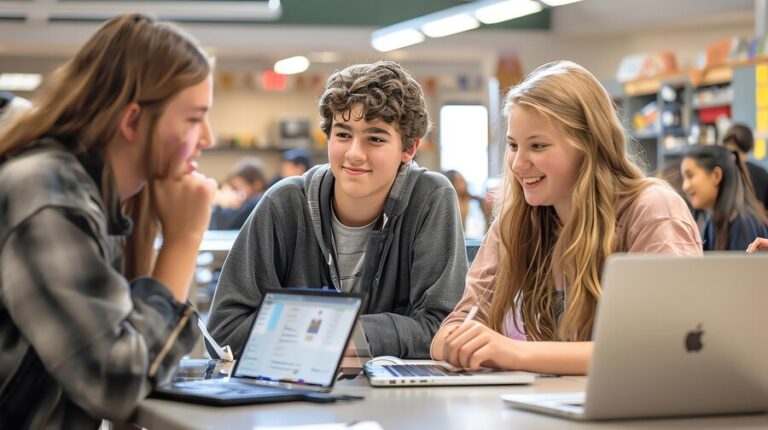How Do You Help Students Complete Assignments?
Completing assignments is often one of the most challenging parts of being a student. With countless deadlines, requirements, and expectations from professors, it can be overwhelming to stay on top of it all. Assisting students in completing assignments involves providing structured guidance, clarifying instructions, and offering feedback on their progress; for additional support and expertise, collaborating with a reputable UK assignment writing company may facilitate the successful completion of academic tasks while adhering to rigorous standards and deadlines.
Get Organized with Calendars, Checklists, and Schedules
Organization is absolutely key when tackling the multiple assignments that come with being a student. Without organization, deadlines will sneak up, tasks will fall through the cracks, and procrastination can take over. I always suggest students start by making a master calendar or to-do list that includes all their upcoming assignments, due dates, and any tests or exams on the horizon.
Building this overview can help identify due dates that are approaching soon and prevent last-minute surprises. I recommend using a paper planner, calendar app, to-do list, or spreadsheet to stay organized. Dedicate time to building out all upcoming assignments in one place so nothing falls through the cracks. Blocking out deadlines and project milestones in advance creates visibility into the weeks and months ahead.
Students should also break large, multi-step assignments down into smaller, more manageable tasks that can be accomplished step-by-step. Writing a giant term paper can feel overwhelming, but creating an outline, gathering sources, writing each paragraph, and editing are smaller reachable goals.
Additionally, I advise students to schedule blocks of time dedicated solely to schoolwork, free of distractions like social media, TV, or chores. Treat study sessions like an important meeting or appointment – block it off in a calendar and protect that time. I can assist with implementing time management strategies like the Pomodoro technique to maximize focus during study blocks.
Facilitating student completion of assignments requires providing clear instructions, offering academic support, and guiding them through the task’s requirements; for enhanced assistance and expertise, leveraging the resources offered by the best essay writing services may aid in ensuring the successful fulfillment of academic obligations while upholding rigorous standards and meeting deadlines. Protecting consistent assignment time in a schedule avoids the tendency to indefinitely procrastinate. It also ensures there is adequate time built into a weekly routine to complete assignments properly, instead of a last-minute scramble.
Provide Useful Resources and Study Supports
An important part of my role is connecting students with resources that can support the research and learning process for their assignments. I can point students towards helpful resources like librarians who can assist in finding source material, tutoring services through the academic institution that offer one-on-one learning support, professor’s office hours for assignment clarification, and any academic success programs or writing centers provided by the college.
These specialized services available through schools provide tailored assistance directly related to course material and assignments. They can answer content-specific questions and help students master the topics needed to successfully complete assignments. I may also recommend online resources, like academic journals and publications, blogs or websites managed by professionals in the field of study, tutorials or lectures on relevant concepts, or sample projects to review for inspiration and guidance.
Providing reputable, high-quality resources curated to each student’s specific classes and needs helps them independently find the information and support needed to tackle assignments head-on. For group assignments or collaborations, I also recommend digital tools that can facilitate coordination and teamwork between classmates. Shared documents, task management platforms, team calendars, and communication channels can streamline working together remotely and ensure the team stays in sync.
Offering technology recommendations helps groups optimize efficiency on collaborative assignments. Providing access to useful resources helps students maximize their learning and lightens the workload by giving them quality sources to pull from.
Check-In for Accountability
An important part of my role is holding students accountable through regular check-ins on their progress. I can act as an accountability partner by scheduling periodic one-on-one meetings to discuss upcoming assignments and review todo lists. Simply talking through each task and identifying next steps is valuable for keeping students on track.
Discussing priorities, challenges, and action plans reinforces accountability to stay focused even during busier times.
I also suggest building in milestone checkpoints on long-term projects, for example assigning completion goals for drafts of different sections. Having smaller incremental deadlines leads to a more steady, manageable pace instead of leaving everything until the end. Celebrating the achievement of these smaller goals provides positive reinforcement.
My consistent check-ins demonstrate commitment to their success by keeping assignments top of mind. Maintaining regular contact makes accountability a shared effort.
Provide Encouragement and Motivation
Completing assignments can often feel lonely or frustrating as students get bogged down by details, experience obstacles along the way, or struggle with time management. Beyond resources and accountability, providing consistent encouragement is critical to helping students maintain motivation and positivity.
Simply highlighting effort and good work ethic goes a long way in demonstrating that I am in the student’s corner. Regular encouragement reinforces growth mindset and reminds them that diligence will pay off. I acknowledge the unique challenges and demands of each assignment to validate the student’s feelings of stress. Pausing to talk through frustrations before diving into work can provide emotional release.
For particularly challenging assignments, I emphasize focusing on doing one’s personal best over perfection. My role includes nurturing positivity, growth mindset, and belief in oneself. Learning is a process, assignments are just single steps along the way. Progress happens through consistent effort. Maintaining self-compassion and inner confidence is key.
I make it a priority to celebrate both large and small successes as students make progress on their assignments. Completing a first draft, having a breakthrough moment in research, acing a quiz – these accomplishments add up and deserve recognition. My goal is providing the morale boosts students need to power through tasks.
Staying on top of assignments amidst the other demands of student life is no small feat. My role is supporting students so they can confidently take on schoolwork step-by-step through consistent motivation and care.
Executive Functioning Skills Are Essential
Beyond external supports, building executive functioning skills helps students independently stay on top of their assignments. Executive functioning involves the mental processes that manage time, prioritize tasks, get started on work, track progress, and juggle responsibilities and demands. Strengthening these self-management abilities helps students handle the workload and expectations that come with academia.
I coach students on developing time management skills like blocking dedicated hours for studying, chunking big assignments into smaller pieces, and creating checklists to stay on track with next steps. Building solid time management abilities minimizes last-minute rushes and reduces stress.
I also emphasize practicing active prioritization to thoughtfully determine the most pressing tasks. Making level-headed decisions about what truly needs immediate attention avoids getting derailed by less important duties. Saying no to unnecessary obligations preserves time and energy for completing assignments.
Starting assignments promptly and making consistent forward progress prevents procrastination-induced panic. I advise students to build habits and routines that enable them to jump into the workflow right away rather than putting work off indefinitely. Celebrating incremental progress keeps motivation high.
Ongoing self-monitoring is also important for independently staying accountable and on top of deadlines. I encourage using organizational tools like calendars, task lists, and project plans religiously in order to track progress and next steps. Regular self-check-ins ensure effort stays steady and focused.
Mastering these executive functioning skills equips students to take control of their workload with less reliance on external accountability. Developing self-discipline and self-management allows students to feel empowered and in charge of their academic responsibilities.
Ask for Clarification to Understand Expectations
Finally, an important step students can take is clarifying assignments upfront to fully understand what professors expect. I advise students to thoroughly review grading rubrics, ask clarifying questions in class, attend office hours if they need personalized explanation, and even email professors polite inquiries about assignment details.
It is vital to eliminate any confusion about requirements early, so students can ensure their work aligns with the professor’s standards. I also remind students to carefully review feedback from previous assignments and make adjustments on future work based on what the professor suggested. Understanding precisely what professors are looking for and incorporating their input right away leads to completing assignments successfully.
Being proactive, organized, resourceful, motivated and asking questions upfront prevents difficulties down the road. With the right strategies, mindset and supports, students can check every assignment off their list efficiently. My role is guiding students to approach schoolwork step-by-step and overcome the challenges along the way. Completing quality assignments builds lifelong academic skills and sets students up for success.
With the right support system, even massive assignments become manageable.






